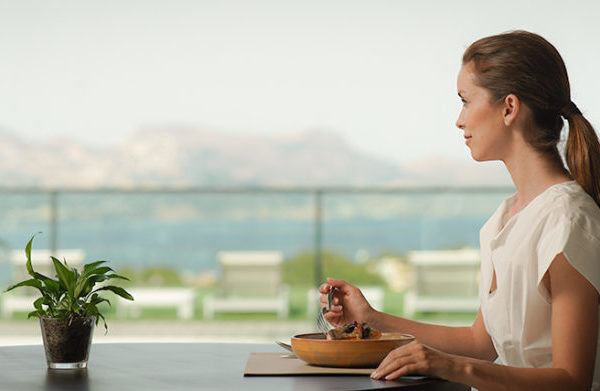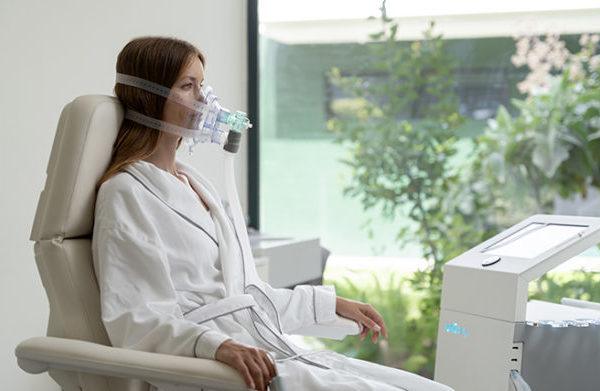
SHA Magazine Health & Beauty
Sleeping problems? 12 tips to sleep better
To sleep well, to get good rest, to dream. It is an activity to which we dedicate a third of our life because it is essential not only to face in the best conditions each new day but also to reinforce the immune system, key in defending ourselves against the external threats. But do we know the keys to better sleep?
“Rest is fundamental to deactivating stress hormones, especially cortisol. Synthetic corticoids are used in medicine for their eminently immunosuppressive effect. In the same way, the inactivation of melatonin leads to a permanent state of immunodeficiency”, explains Dr. Vicente Mera, head of Internal Medicine and Healthy Ageing at SHA Wellness Clinic.
There are numerous studies that support the reduction of risks and faster recovery from infections in people who sleep more and better. It has been shown that those who have low-quality sleep or do not sleep enough are more likely to get sick after being exposed to a virus. Lack of sleep can also affect the speed of recovery from illness.
The benefits of sleep
A good night’s sleep leads to better concentration and productivity in the daily routine. Conversely, a lack of sleep adversely affects some brain functions. Rest also prevents or reduces the risk of heart disease. It has been sufficiently proven that people who sleep little and badly have a higher risk of suffering a heart attack or stroke than those who rest well for 7 to 8 hours every night.
At the same time, good rest influences the metabolism and lowers the risk of diabetes. Several studies warn that reducing sleep time affects blood sugar levels and reduces insulin sensitivity. Besides, poor sleep habits are associated with adverse effects on blood sugar levels, and those who sleep fewer than 6 hours a day are at higher risk of developing type 2 diabetes.
And as noted above, getting enough sleep reduces the risk of depression. Conversely, people with various sleep disorders have higher rates of depression than those without them.
Sleep hygiene and healthy habits
In times of confinement, teleworking, and high-stress loads, the basics are to establish healthy routines to encourage good rest and generate good sleep hygiene habits.
Next, Dr. Mera gives us some practical advice to improve the quality of our sleep:
- Go to bed before midnight. It is essential to have a sleep ritual and make it a routine that is repeated every night. In this way, a kind of conditioning is created by which the brain learns when it should start the sleep cycle.
- At bedtime, do not use any distracting devices such as televisions, mobile phones, etc. They usually produce stimulation in the brain that significantly alters sleep cycles.
- Use blinds to block light pollution and earplugs or white noise to block sound pollution.
- Eat a light dinner early, ideally 2 hours before going to bed. If, in addition to having dinner too close to sleep, we then skip breakfast, we increase our risk of suffering cardiovascular accidents and suffer greater mortality, according to an article published in the European Journal of Preventive Cardiology.
- Keep the room temperature below 21 degrees. Warm temperatures overactivate the metabolism. This, in turn, is the trigger of brain activation that prevents us from sleeping well, leading to an increase in sleep disorders and anxiety.
- Do not consume stimulants such as drinks with caffeine after 3 pm. Caffeine has a stimulating effect that affects our internal biological clock, called the circadian rhythm, which regulates the sleep-wake phases and tells us when to sleep and when to wake up.
- Do breathing exercises, mental and muscular relaxation before going to sleep. Concentrating on your breathing can be very helpful, something that can be drawn from the ancient lessons of oriental disciplines such as yoga and pranayama techniques.
- Do not take long naps. The maximum should be 15-20 minutes. With this time, we will not experience any feelings of slowness or sleepiness after waking up because we will not enter a deep sleep phase.
- Always use the same scent in the room and bedding. Lavender is the best because its properties favor a decrease in heart rate and blood pressure, which helps to reconcile sleep.
- Drink any combination of Melissa or Passionflower infusions, or low doses of magnesium and/or melatonin, one hour before going to bed.
- Do not do intense exercise at the end of the day. The ideal is to do a constant and moderate physical activity during the morning. At this time, you can do at home stretching, yoga, push-ups, dancing, etc.
- Get up early. Whenever possible, the ideal is to wake up naturally, with sunlight. Waking up with the sun is a biological habit in which we put our body in tune with nature. The body responds to darkness by producing melatonin, the sleep hormone. Daylight stops this process, making waking up much easier once the sun is up.





